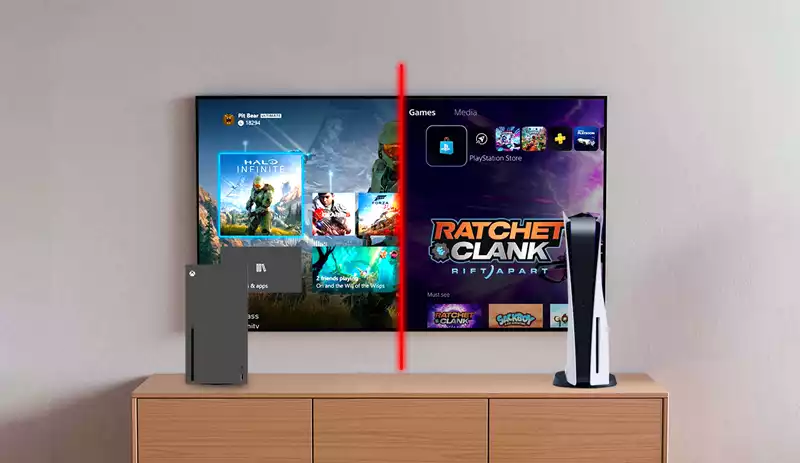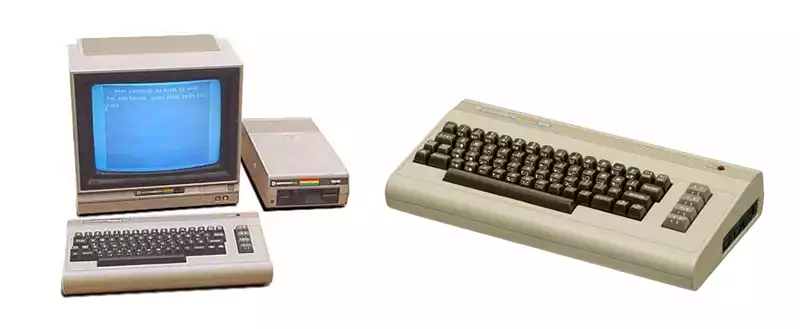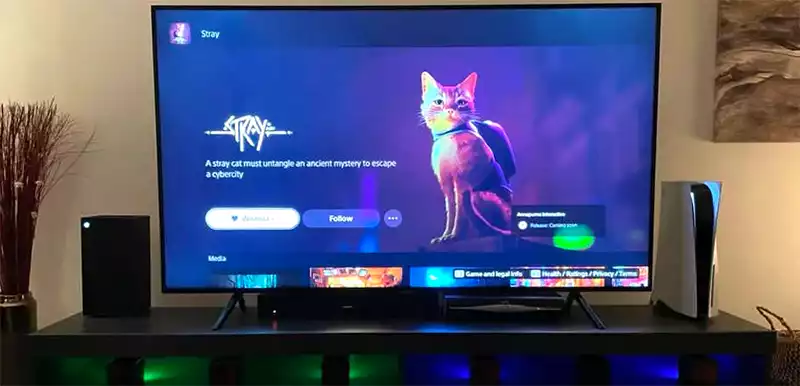You can also be interested in these:
- PlayStation 5 101: PS5 frequently asked questions
- Troubleshooting connectivity issues on an Xbox One Controller: A step-by-step guide
- Can you buy a PS5 on layaway?
- What the “Xbox is off turn off storage” setting means?
Gaming consoles are a fascinating breed of devices. Unlike PCs and many other electronics, gaming consoles were originally built with one purpose in mind, that being gaming. They weren’t intended for much more than that. People were content with this being the singular reason for buying a console. Then, things began to slowly change as companies wanted to set their product apart from others.

With the implementation of the modern operating system, consoles are now multi-capable devices. Yes, they still primarily play video games, but why settle for just that when your console could be so much more? Nowadays, your Xbox One X and PlayStation 5 can record gameplay, post videos online, browse social media and even directly stream to streaming sites. They’re the full package.
But just how did we get here? What exactly compelled console hardware manufacturers like Sony and Microsoft to installing sophisticated operating systems on their gaming consoles? And while consoles can do many things these days, hardcore gamers often ask, do consoles really need to have operating systems? That’s what we hope to answer with today’s video.
The history of game console Operating Systems and UI
In the beginning, before Nintendo, Sega and Sony began to revolutionize the gaming scene, the king of the market was Atari. Of course, gaming consoles in those days weren’t exactly sophisticated. With simple 8-bit soundcards and incredibly basic games, developers could not have cared less about the console’s UI.
When it came to the breakout console, the Atari 2600 (1973), games came with their own systems on the cartridge itself. While the console featured a light graphical user interface (GUI), it was run entirely on bits of code, and couldn’t be called an operating system in any capacity. Despite this, the console flourished, selling thousands of units to fledgling gamers everywhere.
Over time however, Atari would fail to keep up with its competitors. Products like the Commodore 64 (1983) would supersede Atari’s failed console follow ups. The reason for this? Fully fledged operating systems capable of so much more than just games.

You could paint, you could code, you could design, and of course, you could game. In fact, thanks to the higher processing power, developers found more freedom in designing their games. The downside however was that running the games was a chore. Gone were the days of plug and play games, now you had to run complex installations yourself on chintzy internet.
As Atari died out due to poor consoles and poorer games, people gradually lost interest in gaming on their new systems. While they were powerful, trying to make games work was a chore. Ardent gamers remained, but most casual players dissipated away.
Nowadays, we refer to this as the great video game crash of 1983, and for good reason. A failure to innovate and evolve caused games to die out, with no signs of return. Only when Nintendo arrived in with the Nintendo Entertainment System (NES, 1985) did gaming begin to return to its former glory.
Although the NES had no operating system to speak of, it coasted on having excellent quality games, ushering gamers back into the fold. Like the Atari 2600, the NES games had their operating systems bundled with the cartridge. The console itself had no such thing, but after the video game crash, people were just happy to have easy access to games again. Of course, if games wanted to survive again, this couldn’t last.
The beginning of Operating System features on consoles
Nintendo would begin experimenting with new games and features on their subsequent console, the Super Nintendo Entertainment System (SNES, 1990). A game like Mario Paint was less of a game and more of a compilation of art and music tools. Public reception was excellent, and soon, companies would begin to see the value of having these extra features on consoles.
With Sony, Nintendo and Sega competing fiercely for the top spot, the consoles would begin having more sophisticated GUIs. Despite this, the first console to have a true OS was the Sega Dreamcast (1998), running a modified version of Windows CE.
The console would have many key features of modern gaming consoles like web surfing, video playing, online connectivity and even downloadable games, but it was too ahead of its time. Most gamers loved these features, but couldn’t yet make full use of them. From here however, the door was open, and gamers were ready for a new era of multi-capable game consoles.
Operating Systems on modern day consoles
Rushing to compete, every console developer would begin pushing their new consoles with operating systems capable of many different features. Video streaming, movie playing, web surfing, downloadable games, accessible WiFi, you name it. Consoles like the PS3 and Xbox 360 brushed the surface of what was possible, but only with the PS4 and Xbox One did things begin to really heat up.

By now, your console was essentially an all-in-one media box, capable of many things a PC could do. It would have its own internal storage, with apps and programs tailor-made for each console. By far the biggest step forward for modern gaming consoles, though it’s also been somewhat contentious as of late.
Many gamers question whether all of this fluff is really necessary, and more importantly, is it really helping video game development? What if consoles went back to simple GUI systems, with their systems on the discs again? Wouldn’t that bolster game performance?
So do consoles really need Operating Systems?
Addressing this issue requires a nuanced viewpoint. With today’s powerful processors and other impressive components, it’d be fully possible to run a system off of a disk or SD card like before. Not only that, but it would also be faster since the game doesn’t need to load any elements off of its slower internal storage.
Many people see these embellishments and extras as things that take away from the console’s focus. Not only do they make the console slower, but every feature is an added cost that the manufacturer needs to take into account. Jacking up console prices for reasons outside of video games doesn’t sit well with many gamers.
As we said earlier, any console could be fully functional with no OS, as long as developers know this. It’s an interesting dilemma, since there are several points that support it. Many gamers don’t want their consoles to be glorified PCs anymore, but does that mean consoled don’t need operating systems? In our earnest opinion, gaming consoles do need them, to stay competitive.
Why Consoles Need Operating Systems to survive
Looking back at the great video game crash of 1983, one thing is evident. While hardcore gamers are always willing to find some way to game, casual gamers want convenience, quality and innovation first and foremost. Atari’s failure to offer a product that matched up to its competitors in pricing, features and performance is what caused their downfall, and consoles need operating systems to avoid this.
While it’s true that console prices rise due to features bundled in their operating systems, these features are what allow consoles to compete with their main rival, the gaming PC market. Imagine, if your PS5 or Xbox One X couldn’t even download games, requiring physical media all the time. Things would be much less convenient, and that turns people away from consoles.
A big selling point of modern consoles is how they can act as all-in-one media centers despite their focus on gaming. An Xbox One X is a powerful console, but it’s also an impressive streaming box, capable of playing 4K video hitch free. It comes Netflix, YouTube and many other services bundled in, all conveniently accessible from your Xbox home screen.
If consoles didn’t have these features, gaming PCs would be far superior to consoles. The extra costs that arise from software features on consoles are actually negligible. On top of that, even with these extra costs, gaming consoles are more affordable than gaming PCs. It would make no sense to remove these features when all they do as add value and interest to your product.
Performance is another big talking point, but it’s not nearly as relevant as some gamers make it out to be. Modern consoles are no slouches. Not only are they equipped with impressive hardware, but they also feature games that have been optimized to perfection. You will not find games that perform with hiccups on consoles, and the same cannot be said about cheaper gaming PCs.
The current day gaming console is a different beast from the consoles of yesteryear. These days, they thrive off of all their features and extras. They separate themselves from PCs through reliability, innovation and pricing, which are exactly what old companies like Atari needed to push. All of this is built on the back of the operating system.
As it stands, consoles do not need operating systems to function. However, they do need operating systems to thrive. In an age where even your fridge could run some form of operating system, gaming consoles need to adapt in order to survive and do well. If they don’t, then we’re set for another video game crash, and nobody wants to see that, do we?
More stories like this
- PlayStation 5 101: PS5 frequently asked questions
- Troubleshooting connectivity issues on an Xbox One Controller: A step-by-step guide
- Can you buy a PS5 on layaway?
- What the “Xbox is off turn off storage” setting means?
- Can you charge Xbox One controller with Micro USB?
- What SSD are compatible with PS5 and how to install